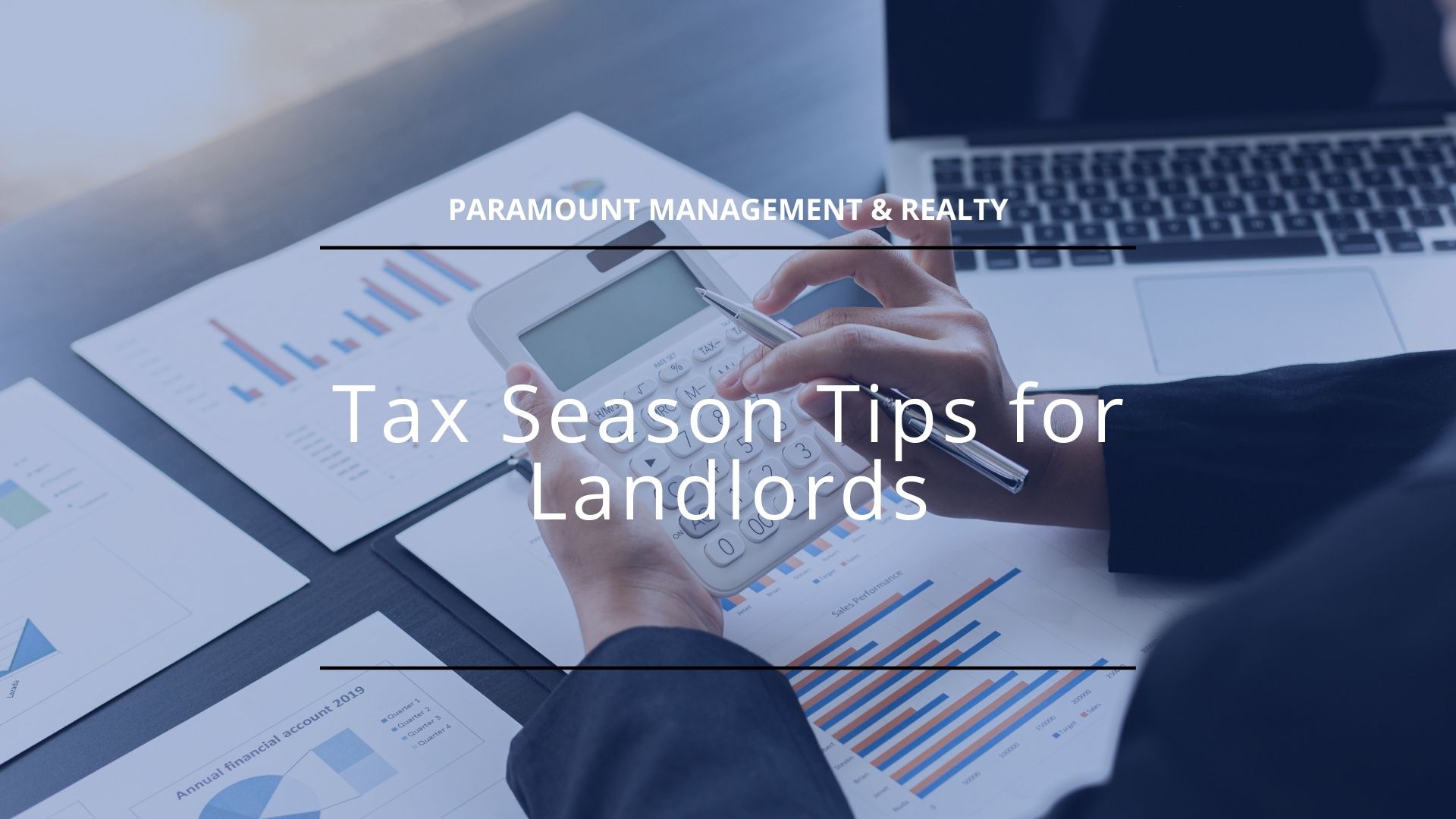
Landlords, just like everyone else, are taxpayers. The Internal Revenue Service (IRS) requires landlords to report all their annual rental income when filing tax returns. The IRS defines rental income as any payment a landlord has received for the occupation of their rental property.
Rental income includes rent payments and expenses paid by the tenant, as well as late rent fees and lease cancellation fees. However, security deposits received by a landlord aren’t included in this group if they are refundable at the end of the term.
For first-time landlords, filing taxes can be an intimidating process. And even for seasoned landlords, they can find the process equally stressful thanks to the pandemic era.
With the changeable rental market, the ending of eviction moratoriums, and a host of other financial uncertainties, finding ways to minimize your tax deductions as a real estate investor is essential. As such, the following are 3 of the best tax season tips for landlords!
1. Keep Organized Records
Great organizational skills are a must-have for landlords. Keeping organized records can help you save a lot of time and money. In addition, having everything recorded will ensure you don’t miss out on any deductions, thereby saving you money.
Your records should include both short-term and permanent records. Short-term records include the following:
Rent payments received and any return on investment.
Office expenses like office supplies and internet access
Advertising costs for your property
Any expenses you incur to entertain existing or prospective tenants
Legal fees incurred toward insurance, legal representation, and realtors
Repairs performed on the property

For permanent records, you’ll want to keep these indefinitely. Such documents include:
The property deed
Taxes for past years
Loan documents
Insurance policies
Legal documents (court appearances, fines, inspection reports, etc)
All tenant leases
Admittedly, keeping track of all these records can be challenging. For this reason, make digital copies. Remember to have a backup. You may also want to retain a hard copy of your most important documents. Hiring a property management company is also a great way to keep track of all your records.
2. Take Advantage of Any COVID Resources the Government May Provide
The past two years or so have been tumultuous for everyone, including landlords and tenants. From moratorium regulations to transitioning to virtual property showings, landlords have had a lot to keep track of.
But as normalcy begins to creep in gradually, pre-pandemic practices are shifting back. However, turnover rates, rental prices, and evictions still remain pretty unpredictable.
In fact, did you know that landlords only received half the rental income during the pandemic era? That’s according to a recent report compiled on small, independent landlords by The Harvard Center for Housing Studies.
Luckily, even without a relief package announced for 2022, the government is still offering support to landlords. You can learn more by visiting Benefits.gov.
3. Claim Some Tax Deductions
You don’t need to pay more taxes than is necessary. This alone can make the difference between losing money and earning a profit on your rental property.

The following are some of the tax deductions you can take advantage of:
Travel expenses. Do you have to commute to take care of your rental property? If so, you may be entitled to a tax deduction. For example, do you have to drive to the hardware store to buy a part for a property repair? Or do you find yourself having to drive to your rental property to handle a tenant complaint? Such travel expenses are tax-deductible according to the IRS
Personal property. Is there a personal property that you use when managing your rental property? Such property may include furniture or appliances. If you do, such personal properties are usually tax-deductible for one year. The property must not exceed $2,000
Repairs. The cost of repairs done to a rental property is also tax-deductible in the year in which they occurred. The costs, however, must be ordinary, necessary, and reasonable
Interest. This is arguably one of the biggest deductible expenses for landlords. Examples of deductible expenses include mortgage interest payments and interest on credit cards
Insurance. You may also deduct premiums for almost any insurance you’ve taken for rental activity. That may include theft, fire, and flood insurance
How To File Your Taxes as a Landlord
The process in which to follow to file your taxes will depend on the property’s ownership. If you own the property as an individual, then you’ll need to file IRS Schedule E, Supplemental Income and Loss to report your gross rental income.

On the form, you’ll need to indicate all the annual income received and expenses incurred. If you made a profit, you’ll have to add that amount to any other income you received during the same period. Examples of such incomes include a job salary, an investment income, or an interest income.
If, however, the property is owned by a business entity, then the manner of filing to follow will be different. Here, you’ll need to report the income and deductions through a special form: the IRS Form 8825.
Bottom Line
A rental property can be a lucrative investment. However, there’s more to it than just collecting rent money at the end of every month. Among other responsibilities, you must abide by your federal tax responsibility to report all rental income on your tax return. But this can be anything but easy, especially if you’re just starting out.
And that’s where Paramount Management & Realty comes in. We’re a trusted property management company in Phoenix, AZ. We can help you maximize your rental income in a variety of ways, including helping you maximize your tax deductions and providing you with customized property management services. For more information, get in touch with us today!



